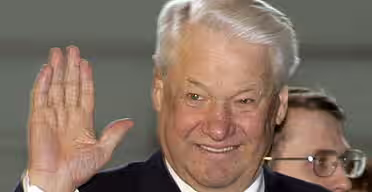Boris Yeltsin, indeed a pivotal figure in Russian history, passed away at the age of 76. He played a crucial role in shaping the trajectory of Russia during a tumultuous period. Yeltsin rose to prominence as the first popularly elected leader in Russia’s history in 1991, following the collapse of the Soviet Union.
During his presidency, Yeltsin navigated Russia through significant political and economic changes, overseeing the transition from a centrally planned economy to a market-oriented one. However, his tenure was marked by considerable challenges, including political turmoil, economic instability, and social unrest.
Yeltsin’s leadership was characterized by bold reforms, but also by controversies and criticism. His decision-making, particularly during moments such as the dissolution of the Soviet Union and the Chechen conflicts, sparked debate and division within Russia. Despite his achievements in steering Russia towards democracy and a market economy, Yeltsin’s presidency was marred by corruption allegations and economic hardships for many Russians.
His resignation on the eve of the new millennium marked the end of an era in Russian politics. Yeltsin’s legacy remains complex, with opinions about his presidency varying widely among Russians and observers of Russian politics.

